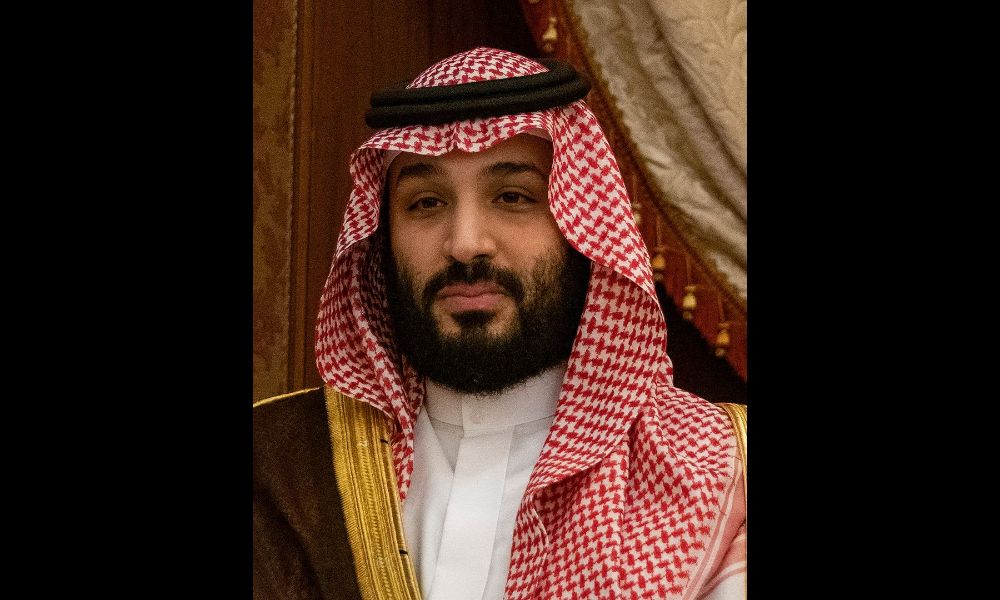If you had told me three years ago that I would be invited to Riyadh, Saudi Arabia for a “Forum on Common Values Among Religious Followers,” I would have asked you what you were smoking. But last month, I joined a small group of religious figures for just such a meeting in Riyadh.
I was not the first to the party. In 2018, Saudi Crown Prince Mohammed bin Salman Al Saud (known as MBS) told The Atlantic that “there are a list of interests that we share with Israel.” (One was that “the Palestinians and the Israelis have the right to have their own land.”) In 2020, the Imam of the Grand Mosque in Mecca argued that the proper stance toward Jews was to “treat them well.” In the past few years, multiple Jewish groups have been invited to the kingdom, and Israeli businessmen have begun entering Saudi Arabia using special entrance permits and even Israeli passports. Saudis are doing deals with Israel in Abu Dhabi and Manama and have even begun to apply for entry visas to Israel. Reportedly, there are quiet consultations with Israel on opposing the Iranian threat.
I confess I still had a frisson of uncertainty on entering Riyadh, but at least a half-dozen people came up to me at my hotel to tell me how pleased they were that I was there. It was the first interfaith conference held in the kingdom itself, and it included Roman Catholic cardinals, Greek Orthodox patriarchs, American evangelicals, Buddhists and a minyan of other Jews, mostly rabbis, ranging from black-hat and Modern Orthodox to Conservative and Reform, including at least one from Israel. Kosher meals were provided, albeit discreetly, supervised by a mashgiach, or kosher supervisor, with food coming from the Emirates and Israel.
Jewish heritage is embedded in Saudi Arabia. A Jewish kingdom existed in the 5th century CE in the southwestern portion of Arabia then known as Himyar. There were Jewish tribes in Arabia at the time of Muhammad, some of whom fought him and were expelled or executed. Still, the so-called Constitution of Medina, signed in 622 CE, treated Jews as “believers.”
The Muslim World League, an international Islamic NGO based in Mecca, declared it was building on this foundation when in 2019 it promulgated the Charter of Makkah, which laid out the case for toleration and religious pluralism by Muslim-majority countries. To be sure, the league, founded in 1962 under royal patronage, had a problematic past on issues of antisemitism and religious tolerance, reflecting the troubled views of Saudis generally. But in the last five years or so it has done a volte-face. The league’s secretary-general, the former Saudi Minister of Justice Mohammed Al-Issa, has turned it toward envisioning a moderate Islam. He has included Jews (like myself) in religious conferences, led a delegation to Auschwitz in 2020 and promoted Islam as a religion of tolerance and peace.
Building on the 2019 Charter, the forum I attended in May issued a communiqué that stated, among other things, that “We must take into consideration the unique differences in each religion” and refrain “from exerting any forced imposition over another religion or culture”; that “We appeal to all countries and the international community to do all they can to provide adequate protection for places of worship. . .and to distance them from intellectual and political conflicts and sectarian strife”; and that “We condemn all extremist, violent and terrorist practices against followers of any religion” and “call for the sanction of any act that would undermine religious symbols and all that religious communities hold sacred.”
What, if anything, does such religious toleration portend for the Saudi-Israel relationship? Prediction in foreign policy is dangerous, and no doubt realpolitik will continue to be the major factor here. But already we have seen quiet and not-so-quiet understandings, such as El Al overflights of Saudi Arabia for limited routes
(to India, for example).
President Biden has announced he will visit Saudi Arabia in July. While I doubt he will bend the knee (or practice his sword dancing as did our former president), he will clearly be looking to have the oil spigot turned on and to extend the Abraham Accords. MBS knows Saudi Arabia is the big prize for Israel, and I doubt he will bite just now. He is far more likely to move toward cooperation in agricultural, medical and energy research, perhaps encouraging Bahrain to take the lead.
More generally, Saudi Arabia is slowly moving away from its traditional association with Wahhabism, the 18th-century philosophy that sought to “purify” Islam and was noted for its intolerance toward other Islamic sects and toward non-Muslims. In 2021, MBS went so far as to say that the movement’s founder, Muhammad Ibn Abd al-Wahhab, would be “the first to object” if he “found us committed blindly to his texts and closing our minds to interpretation and jurisprudence while deifying and sanctifying him.” MBS stated further that “we are returning to what we were before—a country of moderate Islam that is open to all religions.” If so, Judaism will be the beneficiary.
Marshall Breger is a professor of law at Catholic University.
Top image: Mohammed bin Salman Al Saud

